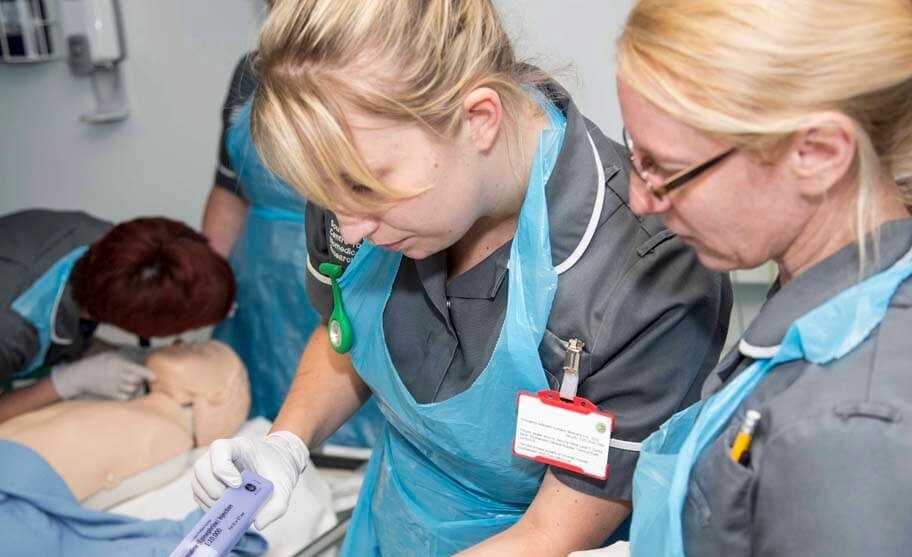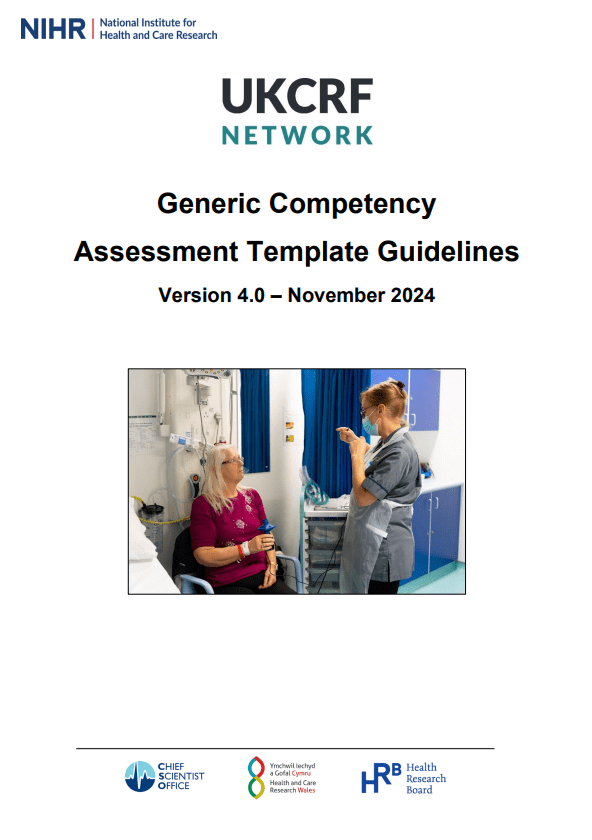
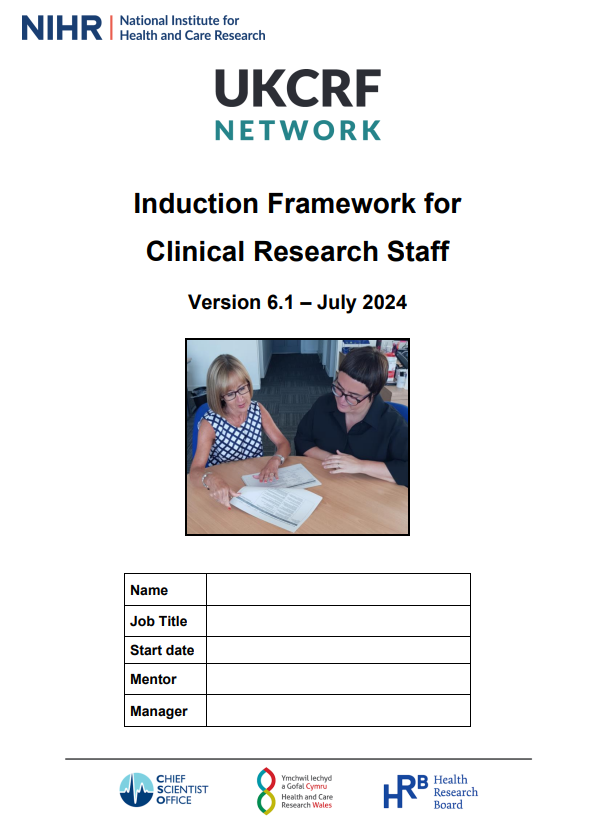
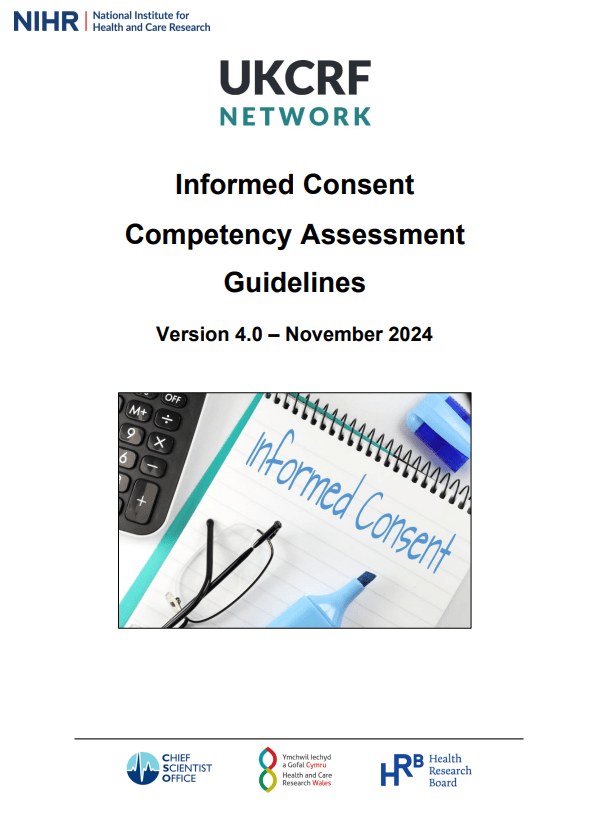
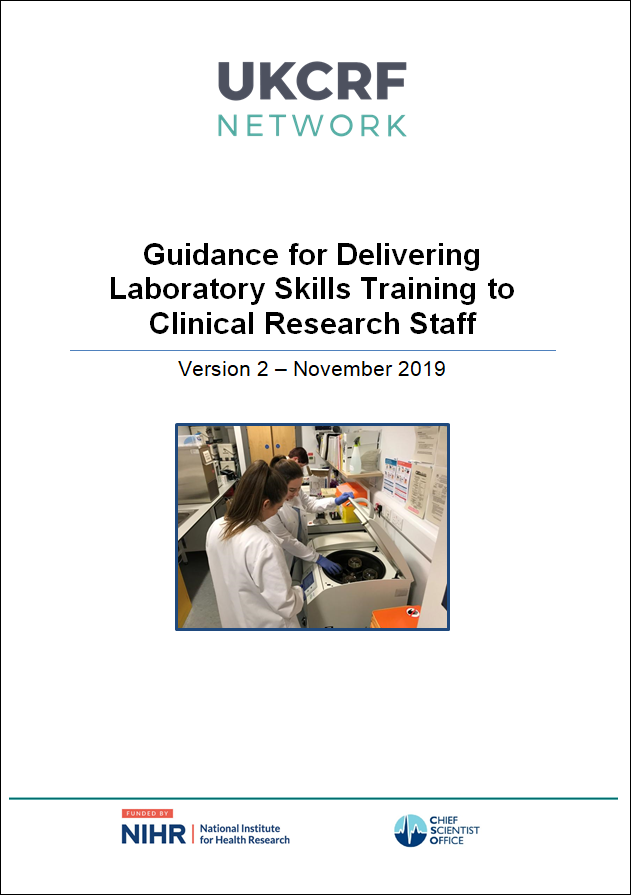
Tools and Guidance
- Many of our documents can be used by Research Departments outside the CRF.
- Documents can be adapted for local use with acknowledgement of the UKCRF Network.
- A full list of our documents and tools can be found below.
- Click on the headings to learn more.
- These can be viewed and downloaded from our UKCRF Network Portal
Study Intensity Tool
Study Intensity Tool v13.0 (2018)
The Study Intensity Tool (SIT) assists research teams in assessing workload and informs workforce planning decisions. The tool accurately predicts the Whole Time Equivalent (WTE) staffing numbers required for the efficient delivery of a specific clinical study. The Intensity Tool has been adopted widely by CRFs, BRCs, BRUs, and LCRNs across the UK and Ireland.
Version 13 of the Tool was launched at the UKCRF Network 2018 Annual Conference in Leeds, and there is now a standalone tool for paediatric facilities.
We have an Intensity Group who deliver monthly web-based training for beginners on how to use the tool as well as monthly Q&A sessions. For more information please visit our training page by clicking here.
Marketing Materials
Marketing Materials Toolkit (2024)
We also encourage CRFs to use the materials to engage their staff and promote the opportunities the Network offers. It’s important for staff to understand that the UKCRF Network is built by CRFs for CRFs, to encourage collaboration and foster a strong sense of community.
The toolkit includes:
- UKCRF Network Marketing Materials Toolkit Guidelines
- Brochure (online e-brochure links for PC/PDF and a printable version)
- Slide Library: Slides from the e-brochure in PowerPoint for CRF staff to copy slides into local presentations
- Induction Framework Slide-Set: Simplified and editable slides designed for induction training on the UKCRF Network
- Roller Banner – PDF Network banner for printing locally
Using the materials:
- The toolkit is available on the Portal, and CRF Managers can find also download the files from the CRF Manager MS Teams channel.
- If you’ve used these materials, we’d love to know where and how!
- You can also submit ideas for improvements here.
Training and Education
Induction Framework for Clinical Research Staff v6.0 (2023)
The Induction Framework for Clinical Research Staff has been designed to help CRFs and other research organisations develop a comprehensive induction programme for new starters. It has been developed by the UKCRF Network Education & Training Group and is based on best practice from a number of established CRFs.
The framework recommends a format for induction and is designed so that it can be adapted to meet local needs. It can be used for all potential research roles carried out by staff engaged in the conduct of clinical research. It identifies key areas and themes that should be covered within the first three months of a new employee being in post, all or some of which will be applicable depending on the individual role.
An updated version of the tool was launched in July 2023. More information can be found here.
Student Placement Toolkit v1.0 (2023)
The UKCRF Network Student Placement Toolkit, created by the UKCRF Network Education & Training Work Group, serves as a comprehensive guide to support CRFs in supervising students. Drawing from established CRFs, the toolkit offers insights into setting up placement areas, providing guidance for supervisors and assessors, and suggesting valuable learning opportunities for students. An adaptable SOP guide outlines the aspects of care students can engage in, coupled with the required level of GCP training, allowing flexibility for customisation at individual sites.
The toolkit includes a pre-placement student orientation pack for proactive planning, a placement workbook for ongoing personal learning, and activity worksheets with answers, facilitating shared teaching responsibilities within the team. Recognising the diverse needs of NHS Trusts and Boards, the student packs and activities are designed for local adaptability, serving as valuable tools to complement existing student supervision requirements and enhance overall learning opportunities.
The tool was launched at the 2023 conference and can be downloaded from the portal here.
Competency Assessment Template Toolkit v4.0 (2024)
The Competency Assessment Template was created by the Training and Education Work Group to offer a clear and practical framework for staff tasked with writing competency assessments in clinical research. This template is particularly useful when there isn’t an existing document or framework available.
In addition to the generic Competency Assessment Template, we’ve also developed templates for specific activities, such as obtaining informed consent and safe sample processing.
The toolkit includes:
- Competency Assessment Template Guidelines (PDF)
- Multiple Generic Competency Assessment Template (Word)
- Single Generic Competency Assessment Template (Word)
- Informed Consent Competency Assessment Guidelines (PDF)
- Adult Informed Consent Competency Assessment Template (Word)
- Paediatric Informed Consent Competency Assessment Template (Word)
- Laboratory Competencies for Clinical Research Staff Guidelines (PDF) – under review, coming soon!
- Safe Sample Processing within Research Laboratories (Word)
- Blank Laboratory Competency Assessment Tool (Word)
- Pre-populated Laboratory Competency Assessment Tool (Word)
Emergency Scenario Training Guidance Document v5.1 (2020)
The Emergency Scenario Training Guidance has been designed to support the planning and management of clinical emergency training within CRFs. The document includes a scenario delivery tool, five core adult scenarios, five core paediatric scenarios and a debriefing tool.
The guidance reflects recommendations from the MHRA (2007, 2012) and the guidelines issued by the Association of the British Pharmaceutical Industry (ABPI, 2007, 2012).
An updated version of the tool was launched in June 2019. More information can be found here.
Informed Consent Competency Assessment v3.0 (2020)
The Informed Consent Competency Assessment is a tool that can be utilised by all research
staff conducting clinical research. The purpose is to provide a recommended structure to
ensure that all staff undertaking the receiving of valid informed consent from research
participants are adequately trained and equipped with the necessary skills. The structure
may be adapted to meet local needs.
Phase I Toolkit
Risk Stratification Matrix and Contingency Plans (2021)
We have training video that provides a detailed overview, click here.
Phase I Governance Standards Framework (2021)
We have a training video that explains why this framework was created, its purpose and why you should embed this into practice (click here).
Final Safety Dosing Day Checklist v1.0 (2020)
The final safety dosing day checklist (formerly the early phase bedspace checklist) has been designed to provide a framework for final safety checks. The checklist ensures all safety governance procedures are in place prior to exposing participants to investigational medicinal products (IMP). The checklist was piloted at six CRFs and is now available.
UKCRF MHRA Phase I Accreditation Gap Analysis Tool (2021)
Laboratory
Laboratory Equipment List
A comprehensive list of laboratory equipment defining the process, approximate price and purpose of each item. The following categories are included: basic sample processing, general lab, cell work, molecular biology, histology and cytology, and protein biology.
Deviation, Corrective Actions and Preventative Actions (DCAPA) Record Form v1 (2012)
Root-cause analysis is used to identify the origin of each incident, and corrective and preventive actions are then agreed to reduce the risk of the incident being repeated.
Sample Tracking Software
Good sample tracking is integral to all research studies. This tool ensures that the chain of custody of precious research samples is not broken and provides an audit trail to assure sample quality.
Delivering Laboratory Skills Training to Clinical Research Staff Guidance v2.0 (2019)
The guidance helps CRFs and other research organisations establish and deliver comprehensive laboratory skills training to research staff. Training has been developed by the UKCRF Network Education and Training Theme Group and is based on regulatory requirements, guidance documents and on best practice from a number of established CRFs.
Competency Assessment Tool for Laboratory Clinical Research Staff v1.0 (2015)
The tool covers: laboratory safety systems, sample tracking and storage, transporting samples, use and maintenance of pipettes, use and storage of dry ice, use of centrifuges and the use of microbiological safety cabinets.
MHRA Inspection Questions for Laboratories v3.0 (2015)
This tool is used to prepare for laboratory inspections by the MHRA. It poses a series of questions that can be used in mock interviews and may help highlight areas in the laboratory where more documentary evidence is required. The MHRA web site provides information on the inspection process and guidance on Good Clinical Practice for Clinical Laboratories.
Quality Assurance (QA)
Internal Audit Toolkit v1.0 (2021)
- Risk Assessment Tool
- Audit Programme Template
- Audit Plan Template
- Audit Checklist
- Audit Report Template
- Corrective & Preventative Actions (CAPA) Tracker
Data Integrity - Advisory Notes (2019)
The purpose of these advisory notes is not to rewrite guidance that has previously been issued elsewhere. Neither should they be considered a complete and definitive reference point, encapsulating the entirety of the requirements for CRFs. For this reason, relevant references are signposted throughout and should be consulted for further details and more in-depth guidance on regulatory expectations. However, it is hoped that this document will help to explain some of the jargon, improve understanding and give some simple practical advice for ensuring data integrity in a CRF.
Computer System Validation (CSV) - Advisory Notes v1.0 (2016)
Computer Systems Validation (CSV) is a regulatory requirement and is important to demonstrate your systems are fit for purpose. This guidance document informs CRF Quality Managers and other colleagues responsible for maintaining QA across the UKCRF Network on how to carry out the process and provides standard templates that can be used to support CSV activity.
Document Management Systems (DMS) - Advisory Notes
CRFs are required to maintain their documents as part of their QMS in accordance with the requirements of ICH GCP Guidelines and the applicable regulatory requirements. Choosing the right system for your CRF can be a difficult process and knowing what to look out for when buying your document management system (DMS) package is not always obvious.
This guidance document informs CRF Quality Managers and other colleagues responsible for maintaining quality assurance across the UKCRF Network on the different systems available; and gives pointers on what to look out for and to consider when choosing a system.
Deviation Management Guidelines; Deviation Report Template v1 (2012)
A deviation management system is used to identify, record and correct areas and activities that do not meet specified requirements. Reporting deviations is an essential part of a CRF QMS to ensure that clinical research studies are conducted, documented and data generated in compliance with the protocol, Good Clinical Practice (GCP) and all applicable regulatory requirements.
These guidelines are intended to be used as a guidance document upon which to base a facility’s procedure. These guidelines have been developed by the QA Theme Group to assist both newer CRFs that may not have a deviation procedure, and more established CRFs that may wish to review and evaluate their existing systems.
Study Risk Assessment Tools and Guidance v1.0 (2014)
All CRFs that report annually to NIHR must include an overall risk score (High/Medium/Low) for each study implemented. This risk assessment tool provides a method for generating an overall estimate of risk significance (consequence x likelihood) for each study, and also for identifying individual significant risks that may require further review and or action(s). Use of a standardised tool ensures that there is consistency in the risk scores reported to the NIHR. The tool should be used in addition to risk assessment and management procedures, as required by individual Trusts.
Paediatrics
Transition from Paediatric to Adult Research v1.0 (2015)
The purpose of these guidelines is to support research teams when there is the potential for the planned movement of adolescents and young adults with chronic physical and medical conditions from paediatric to adult services during a research study and there is the opportunity for the adolescent participant to remain in the study.
Paediatric Governance Tool v2.0 (2017)
The Paediatric Governance Tool allows clear documentation of prior experience, training and ongoing supervision of practice, to support nurses and midwives working in clinical research. It explores all elements of care associated with children, including communication and physiological differences between children and adults. It enables the employer and employee to identify any areas of clinical knowledge and skills that require supplementation to meet the requirements in The Code.
UKCRF Portal
Access CRF Tools, Standard Operating Procedures & Guidance
Don't have access?
Click the 'Learn More' button.


